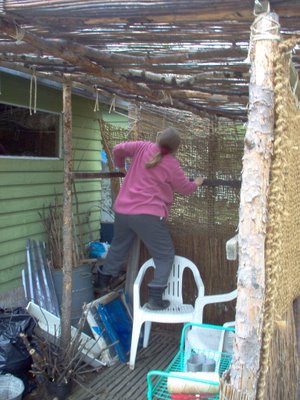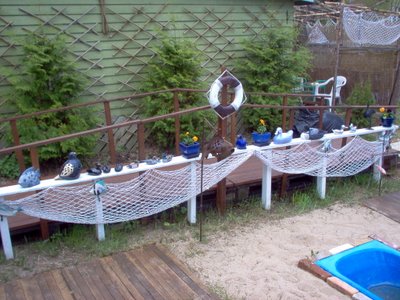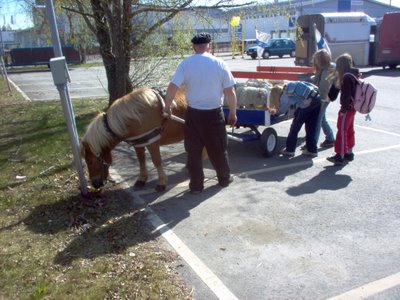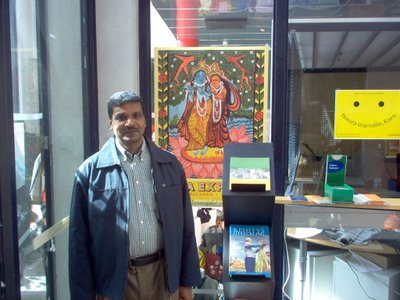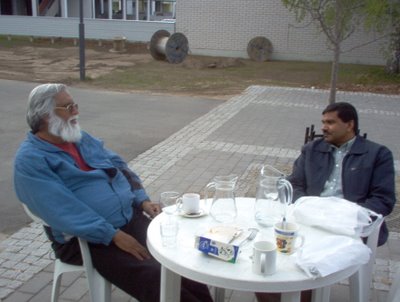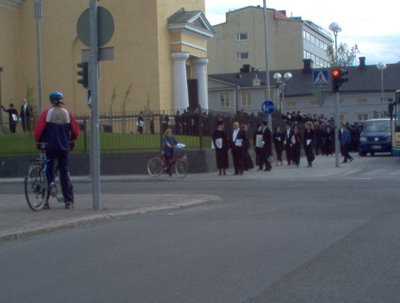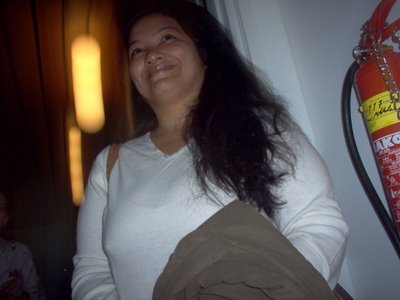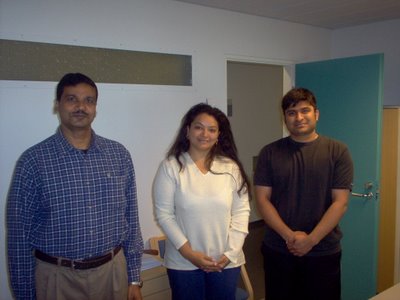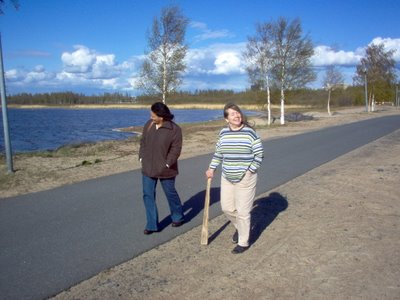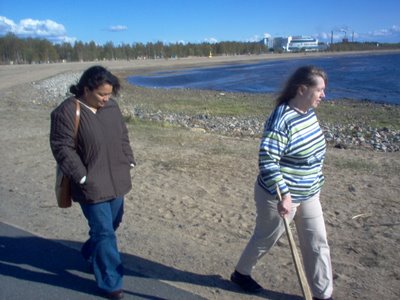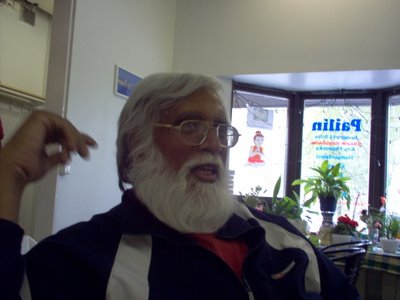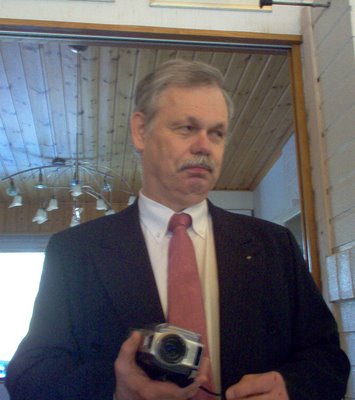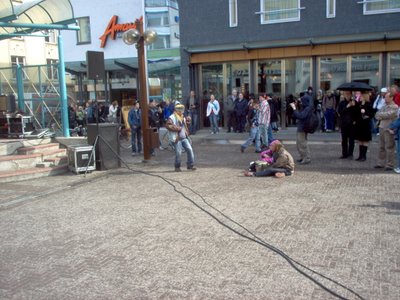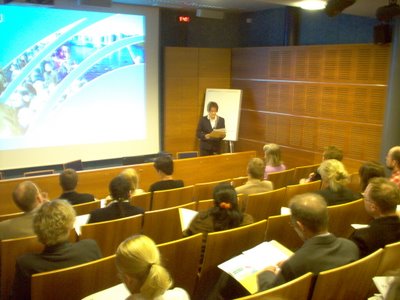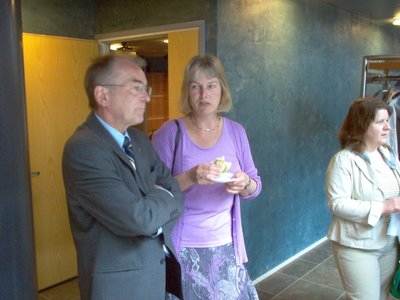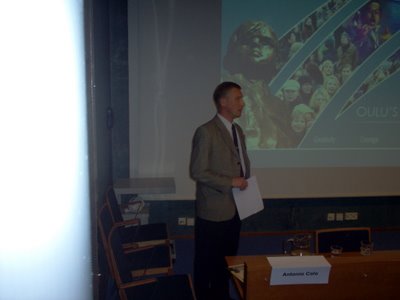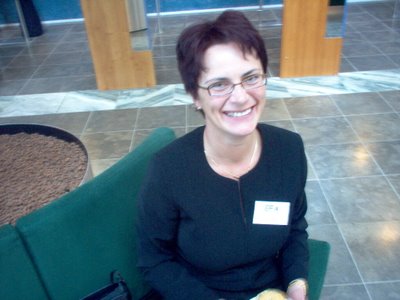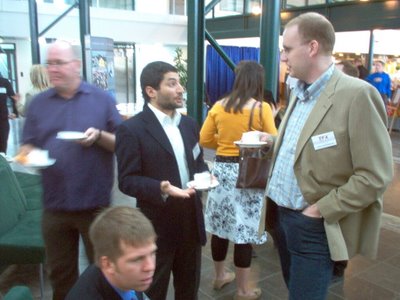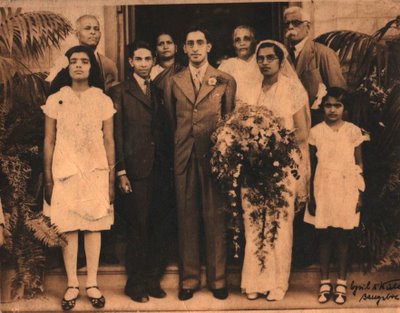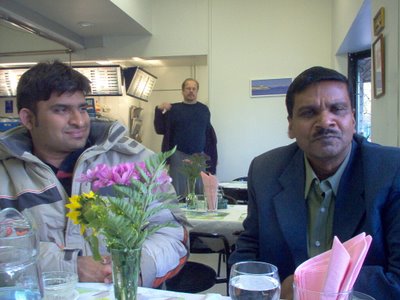Prof Ajeet Mathur has been a friend for over the 10 years he has been in Finland. Ajeet is like a younger brother to Annikki and me, and we love him dearly. Like me, although considerably younger to me, he is a Cathedralite from Cathedral and John Connon School, Mumbai, and also a graduate from St. Stephen's College, Delhi. Like me, he married a Finn, and ended up in Finland. We are the Alumni in Finland for both those institutions, so we have 100% attendance at our reunions.
However, the similarity ends there.
Ajeet is a brilliant professor with immense industrial hands-on experience. He is a prolific writer and his philosophical mind can analyse any situation down to, not just the ground, but deep into the roots. His education skills are seen to be believed as he holds his students in rapt attention. We jointly authored a paper on e-Governance a couple of years ago where he took my mundane and boring facts and turned it into a paper that even had the Indian President, Abdul Kalam, look at "us" in awe!
Many years ago Annikki and friends started a small venture called Aivoairut Oy. Annikki was one of the Board Members. Because of the involvement of members of the Board in many other creative pursuits, the company has been doing just enough to stay alive during the intervening period.
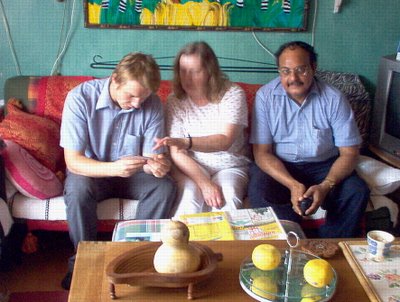
Annikki and Ajeet in Kampitie
Arriving in last Friday's post was the first major publishing effort of this company, a book edited by Ajeet called "Dare to think the unthought unknown?"
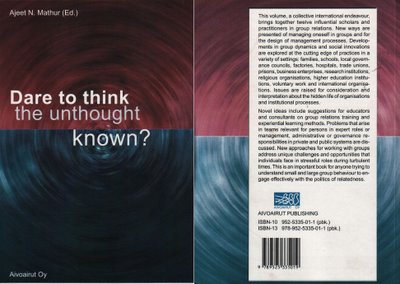
Dare to think the unthought known?
International Perspectives on Group Relations
Edited by Ajeet N. Mathur
Price: EUR 38 + postage
Publisher: Airoairut Oy, PL 836, FIN-33101 TAMPERE, FINLAND,
This volume, a collective international endeavour, brings together twelve influential scholars and practitioners in group relations. New ways are presented of managing oneself in groups and for the design of management processes. Developments in group dynamics and social innovations are explored at the cutting edge of practices in a variety of settings: families, schools, local governance councils, factories, hospitals, trade unions, prisons, business enterprises, research institutions, religious organisations, higher education institutions, voluntary work and international organisations. Issues are raised for consideration and interpretation about the hidden life of organisations and institutional processes. Novel ideas include suggestions for educators and consultants on group relations training and experiential learning methods. Problems that arise in teams relevant for persons in expert roles or management, administrative or governance responsibilities in private and public systems are discussed. New approaches for working with groups address unique challenges and opportunities that individuals face in stressful roles during turbulent times. This is an important book for anyone trying to understand small and large group behaviour to engage effectively with the politics of relatedness.
Whether you be an individual living in isolation or a person in constant contact with a huge cross-section of people, this book is one for you. Once I picked it up I could not put it down. It is 250+ pages of sheer ecstasy, as Ajeet, along with 11 other brilliant minds take apart the words of the scholar Gouranga P. Chattopadhyay (M.Sc., D.Phil, (Calcutta University), FRAI (London), FASC & T (West Bengal), FAISA (Melbourne), Professor Emeritus of Academy of HRD & CEO, Chattopadhyay Associates: Organisation Consultants &Personal Counsellors.) who proposed a few years ago that spirituality may be used to overcome hate and to understand our lives better. The other contributors are Alaistair Bain, Allan Shafer, Anil K. Sen Gupta, Bruce Irvine, Colin Quine, Jane Chapman, John Bazalgette, Sally Eastoe, Sari Joustimäki, Susan Long and Shelley Ostroff.
Approaching group relations from a series of different angles with a series of conversations, never before published, this book is historic in that every sentence is deep in meaning. It is impossible to review this book without virtually quoting every printed line.
The authors differ from each other on various dimensions. Seven men, five women, six nationalities, from five continents, twelve professions. But two things are in common - all have been students of group relations and they have all known and worked with Gouranga Chattopdhyay.
In the first chapter written by Ajeet, he says
"Groups are created, sustained and accepted not because they are necessary evil residues of the group mentality. Without groups, complex transactions of society that require open systems, porous boundaries and the bridging of frictions of space, time, technology, task and sentinece to enable flows of goods, services, capital, people and ideas would not be possible."
Ajeet is explaining what life and after-life could be all about. Whether it be a pack of wolves or a flock of sheep, these principles hold good, although this book is limited to homo sapiens!
May I suggest you get hold of this book as it will not only change your life but it will open up an entirely new world to you that you never knew existed.
Ajeet will be chairing a group discusssion in Oulu next week geared for foreign business owners and investors to share their experiences. His skill in group discussions will become obvious to all attending. (Contact me if you want to take part in this event.)
Thank you, Ajeet, for giving birth to this book, which Annikki and I will treasure.



